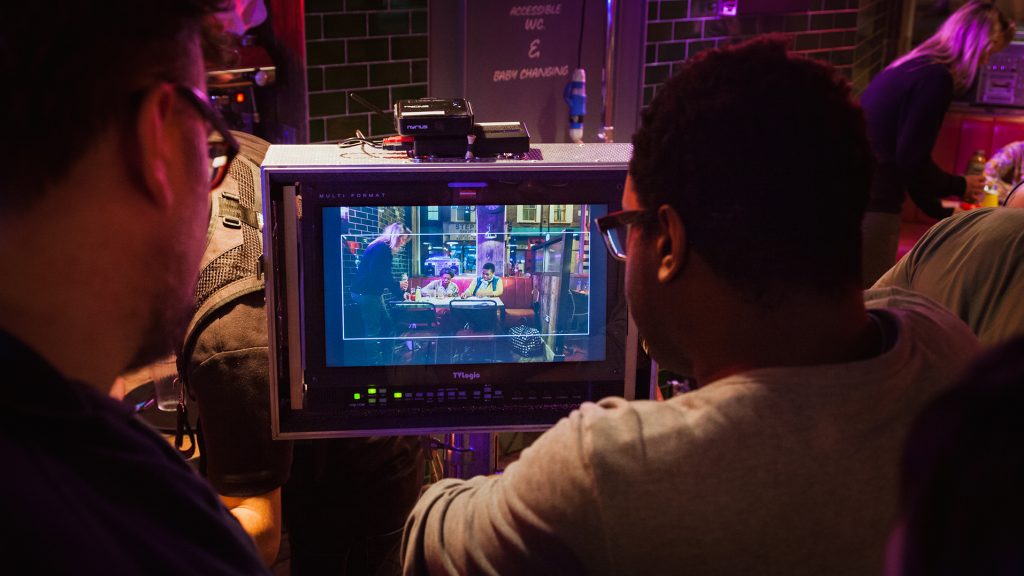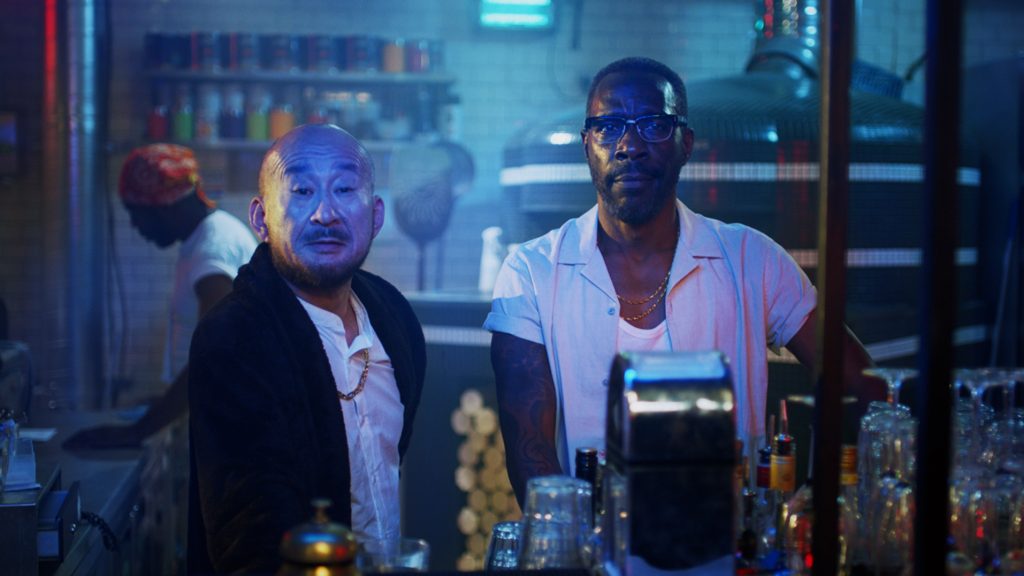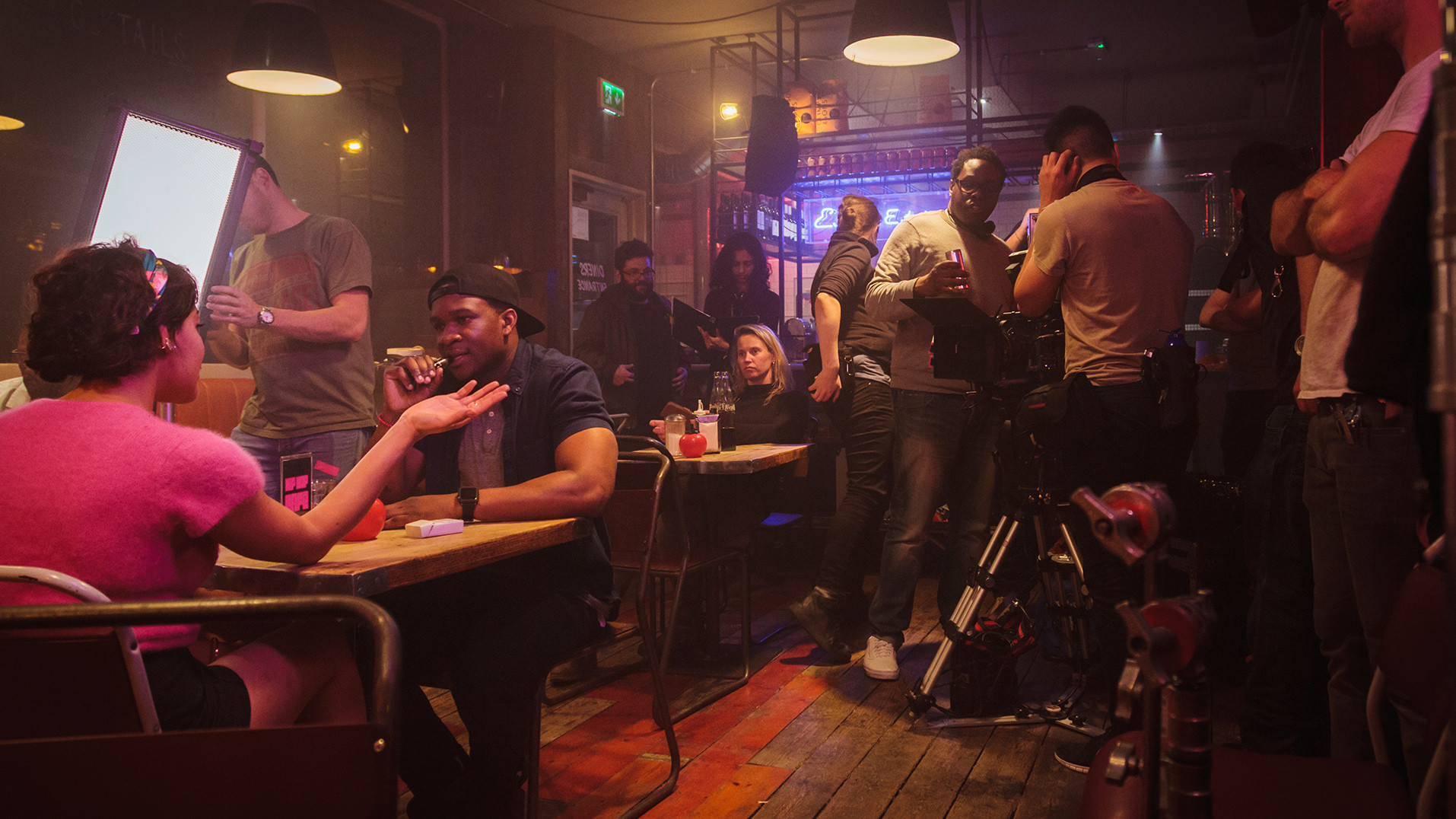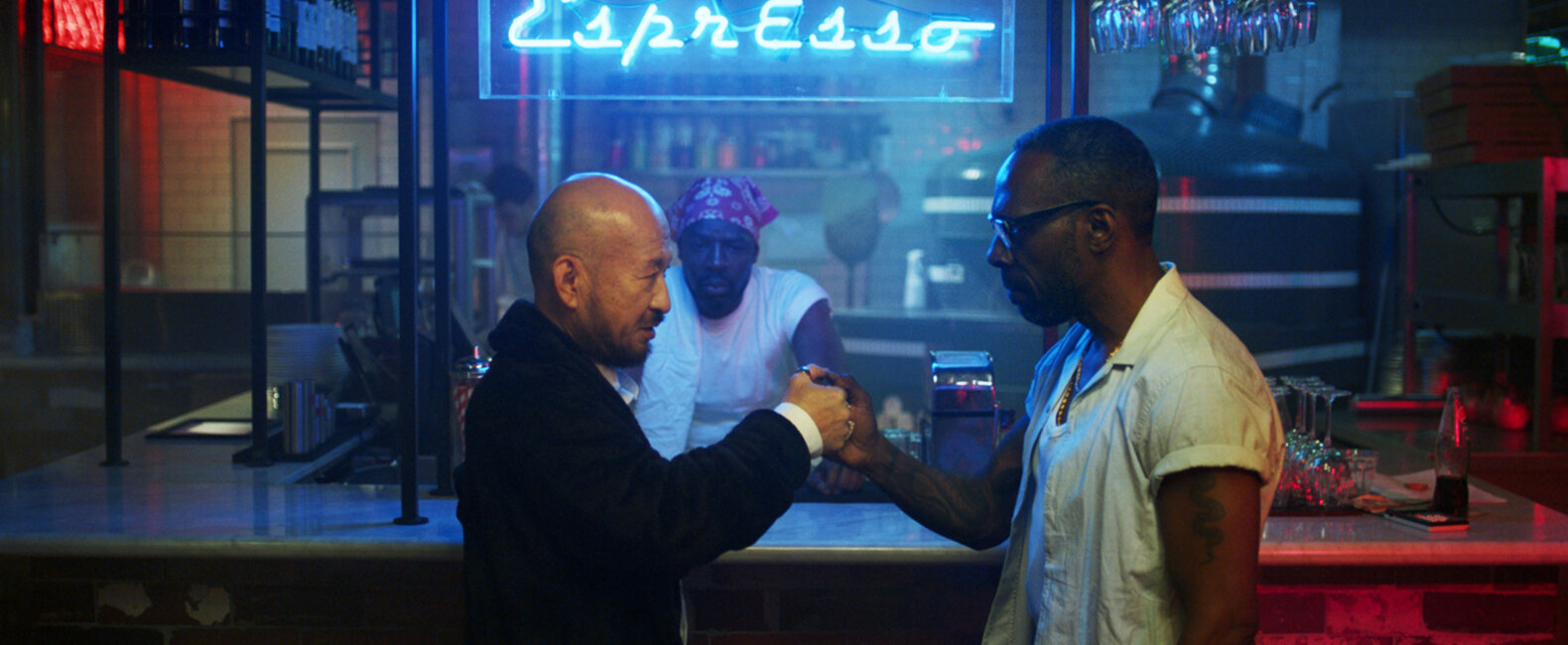Hip Hop Cafe is smart. Very smart. From the location to the soundtrack, the concept to the execution, it all works together seamlessly — which is quite the feat considering the entire short film is framed solely around classic hip-hop lyrics. It’s a simple, yet incredibly time-intensive and difficult concept to pull off. When we talked with U.K. filmmaker Robbie Samuels (a.k.a superrocketman) about his Staff-Picked film, he seemed to have a matter-of-fact reaction to our glowing review of his passion project. To him, it was simple:
“It was just an idea that came up and I thought, You know what? I really want to do that. I don’t think it’s ever been done before,” Robbie told us.
While he may seem reluctant to tout his own talent, we’ll go ahead and do it for him, because the creative qualities Robbie shows in his work are so important — and, more importantly, extremely applicable to us as creatives. So, in the spirit of Robbie’s short-but-impactful nature, we’ve decided to break our conversation into four simple takeaways.
First, you should probably watch the film below if you haven’t seen it — or watch it again, like we did.
1. Get Out There
“I was in New York when hip-hop got really big, in that kind of golden-age era. I was a lot younger and it was my first time on holiday in the states. It was such a great feeling. There were those brilliant music videos on MTV, the music was just amazing, and life for just one summer felt like one long music video. I found that, globally, since this has gone online, it’s not just a thing for me and the friends I grew up with. There seems to be a global feeling that people just love that era.”
This may seem like a superfluous point, but it’s really not. We can’t tell you how many filmmakers we talk to said something along these lines: that their great idea came while they were on the road, experiencing something new — take it from Dan Sadgrove and Lindsey Hagen. New experiences, particularly those outside of our element, force us to adapt and see things from a new angle. If Robbie Samuels hadn’t been in New York for the hip-hop explosion, we wouldn’t have his film — or, at least, not the same film.
Also, notice from his quote that he’s seen a global reaction? It’s because his idea was formed on a global level. There was a movement happening in a specific moment, and by sharing it with complete strangers, he was able to find a connection with that audience years later. If we’re willing to step outside of our bubble, our films will follow suit.
2. Know Your Subject

“A lot of the songs were just songs I loved and knew really well. What I basically did was create an Excel spreadsheet with thousands of different song lyrics from that era and I started to mold the story from there. I had an idea of what I wanted it to be, but it just seemed to work. It was all very experimental. There were a lot of things I did subconsciously when I was putting this film together, because I have an extensive knowledge of the tunes. So, it was just in the background and I was processing it in the back of my mind for quite a few years.”
According to traditional psychology, there are four stages of learning:
- Unconsciously incompetent (i.e. you don’t know what you don’t know)
- Consciously incompetent (i.e. you know what you don’t know)
- Consciously competent (i.e. you know what you know)
- Unconsciously competent (i.e. the things you know go on auto-pilot)
For Robbie’s project, he fell squarely into the latter category. He knew his subject so well that he didn’t even need to think about remembering lyrics and how to apply them to his film. It was second nature. As creatives, it’s important to walk through all of these levels (stage one is the most dangerous and/or rewarding, trust us) but the last stage is where you can truly create. There’s a reason the first step in public speaking is to know your speech inside and out — when you’ve mastered the information, you can focus on delivery, cadence, and tone. In other words, everything but the actual speech.
For filmmakers, the better we know our subject, the more we can forget about it and work on how to deliver it in the most compelling way possible. Because Robbie knew these lyrics inside and out, he could focus all of his attention into turning them into a story and putting the pieces for Hip Hop Cafe together. Of course, you can give yourself an advantage here, too. And that brings us to our next point.

3. Love Your Subject
“I mean, this story was everything to me. It’s every filmmaker’s dream to be in a position where he could just make what he wanted to make. For me, as a black filmmaker from London, making a film about music from America is making a film about something that I’ve really loved and had a massive impact on my life. It may not change anyone’s life. It’s not a really hard drama about a historical event that changed how people think, but I just put a lot of love into it. It has brought a lot of people together just over the music. I love being part of that, making more diverse films.”
We can’t say it any better than Robbie did. To really know a subject is to really love a subject, and visa-versa. In conjunction with our last point, it’s so much easier to know the ins and outs of your film if you’re passionate about making it. We know that’s not always under a filmmaker’s control, but it’s important to take advantage of your love for a subject when it’s there — because that may be the biggest advantage of all.

4. Turn Obstacles Into Opportunities
It was a real cafe we filmed in, so we didn’t have very much time to shoot on location. We made the whole thing in two nights and, on the second night, we only had four hours to shoot. So, I had these two friends, who are quite into AR and VR, basically scan the location and build it into the computer. I could be in the location and plan out all of the shot sequences.
It’s a very new process and we were trying it out for the first time. We just decided that if we weren’t going to have much time in the location, we could measure it out and scan the whole room. Then I could put on the headset and be in the room. It really felt like the room — even when I was on location, it felt like the same distances. I could start to work out exactly what I thought and we planned some clever, complicated shots that we would have never had time to do.
There are always going to be obstacles, particularly in passion projects when budgets, time, and people are in short supply. The trick is to use them to your advantage. Robbie and his team created an entirely new process to put themselves on-set without actually being on-set and it initially came from a pretty tough problem. But, luckily, filmmakers are creative people (i.e. people that excel at solving problems). Lean into that. Nearly every obstacle that arises has a solution, and that solution may end up being better than what you had planned in the first place.

We’ve said before that it’s dangerous to look at other filmmakers’ work for your own inspiration — it can lead to imitation, or, in the very least, derivative work. But, if you can take it a step further and learn the thought processes that led to their film, then you’re getting somewhere. There’s so much creative experience that can be gleaned from great films — as for style and voice, that part is up to you.

















































































